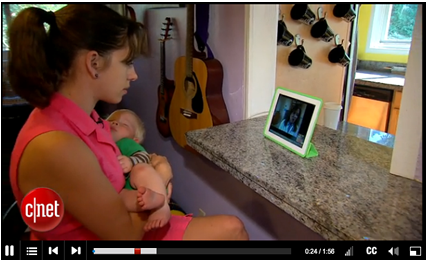 CNET recently featured a news article on how VSee helps maintain patient privacy for telemedicine. One commenter contended:
CNET recently featured a news article on how VSee helps maintain patient privacy for telemedicine. One commenter contended:
“Why not just use FaceTime, Skype, Google Video, or whatever the patient already uses for video calls with friends & family…. My concern is that healthcare practitioners might slow telehealth adoption by forcing patients to use products like VSee rather than supporting what they already use. Or put another way, patients would embrace telehealth faster if they could use the defacto, standard or widely adopted platforms that they already use.”
In an ideal world, everybody could just use FaceTime, Skype, Google Hangouts or whatever they normally use. Unfortunately, people care about their privacy. While these consumer video chat apps are convenient and usually free, they won’t be the ones held responsible when information gets leaked, and they won’t be the ones dealing with the repercussions of leaked information.
Indeed, health information is protected by federal law, and organizations that regularly handle health information are legally liable for keeping that information private – up to a 1.5M per violation liable. For more details about these privacy protections, the U.S. Department of Health and Human Services has just finished the monumental task of finalizing (for now) the 500+ page Health Insurance Portability and Accountability Act (HIPAA), which you can check out here.
Using Skype for telemedicine is like using a dirty scalpel for surgery
That being said, HIPAA rules don’t actually restrict doctors and hospitals from using these apps just as they don’t restrict doctors from using email and phone. What they do require are regular risk assessments and the use of reasonable security safeguards whenever available. The problem is that telehealth and computerized systems are relatively new to the medical world and nobody has quite figured out how to make all the bits and pieces work together smoothly and securely. Apps such as Skype and Google Hangouts may have other functions or work design that make it easy for information to be exposed, such as archiving, data collection, and lack of caller management.
Think of it this way: just as doctors should know better than to use a somewhat dirty scalpel to operate on patients’ bodies, health providers should know better than to use applications that may pose possible security risks to patients’ privacy.
A Skype alternative for telehealth and telemedicine
What VSee does is to fill the current vacuum in health care for a simple, secure video chat that doctors can immediately use without worrying about privacy leaks and security risks. It satisfies Security Rule guidances, and it’s consumer-friendly so anyone can use it immediately even in poor network conditions. For many, the ease of use and peace of mind the comes from using the FDA-registered VSee is worth switching off Skype and Google.
Related articles
- 4 reasons to think twice about Skype for health care
- Why Skype is scary (InTouch blog)
- Ensuring healthcare privacy in the cloud before HIPAA fines hit (Techmedian)
Follow us on Twitter (@VSee) and Like us on Facebook to hear about the latest from VSee!



